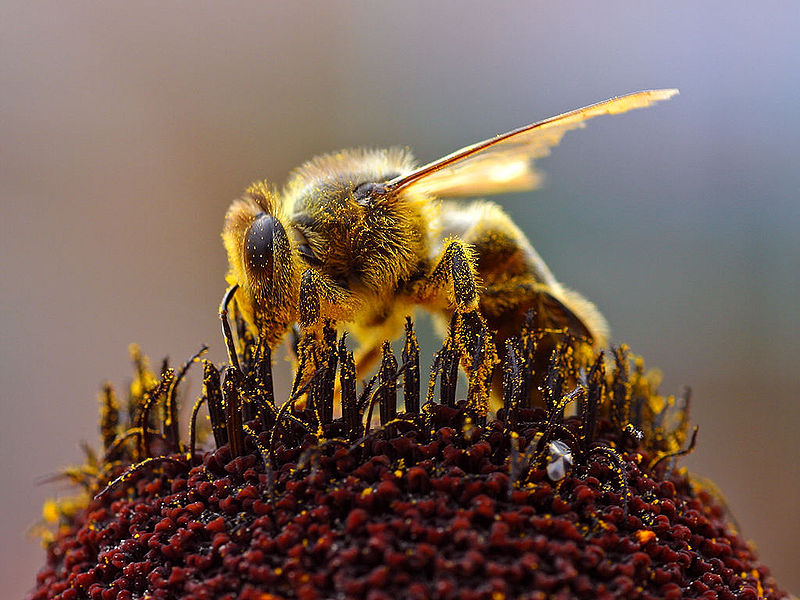Research at the Hebrew University found that the social environment of honey bees changes their internal clock

Parents - do you remember how tiring and exhausting the days and nights were after Rekh Nold joined the family? Now, a new study is expected to make you more jealous than ever of bees. According to the study, conducted under the leadership of Prof. Guy Bloch from the Institute of Life Sciences at the Hebrew University, honey bees are able to work around the clock without getting tired when they receive signals from their larvae in the hive.
The study examined how honeybees in the role of "nurses" are able to demonstrate inexhaustible energy, and suggested that their activity is due to the fact that the biological clock of their larvae is affected by contact with the larvae. The study revealed that when the nurses are separated from the larvae, their biological clock changes rapidly and drastically. The changes were evident both in the behavior of the bees and in the functioning of the internal biological clock in the brain. The research findings indicate that the social environment has a far-reaching effect on the physiology and behavior of animals.
The biological clock, the "internal clock" of the body, regulates a variety of daily physiological and behavioral processes. Several "clock genes" control many activities, including sleeping time, eating and drinking, regulating body temperature and hormone fluctuations. It is known that in humans, disturbances in the biological clock cause problems mainly in shift workers and in new parents and also lead to mood changes. However, very little is known about how the clock is affected by and influences social interactions.
Prof. Guy Bloch, together with Yair Shemesh, Ada Ibn Rothschild, and Mira Cohen chose to investigate the behavior of honeybees in this context mainly due to the complex social environment in which they live. One of the roles of a bee is that of the "caretaker": a bee who devotes the entire lecture to caring for the larvae. "The similar level of activity during all hours of the day in the nurses is different from that of bees and other animals, whose activity levels rise and fall during the day.
In an article recently published in the important scientific newspaper - The Journal of Neuroscience, the researchers estimated that changing the social environment of the "nurses" may change their activity levels, and therefore separated them from their larvae. The researchers found that as a result of the separation, the cellular rhythms and behavior of the bees were completely changed and they showed a strong activity rhythm with continuous nighttime sleep.
"Our findings show that signals transmitted by the bee larvae through close or direct contact change the bee's biological clock, and the presence or absence of larvae was manifested in changes in the expression of genes in the bee's brain, which made it possible to adapt their behavior to the social environment in the hive," says Prof. Bloch. "The flexibility of the bees' clock is amazing, considering that humans and most other animals are unable to endure long periods of activity around the clock without harming their performance and health."
According to Prof. Bloch, "Because similar genes work in the biological clocks of bees and mammals and they work in a similar way, the question arises whether the biological clocks of other animals and humans also depend on their social environment to a similar extent. Future research will have to find the mechanism that allows the bee clock to show so much flexibility and the social signals that influence the expression of the biological clock genes. Further research dealing with this question could have implications for people who suffer from disturbances in the cycles of behavior, wakefulness and sleep."
